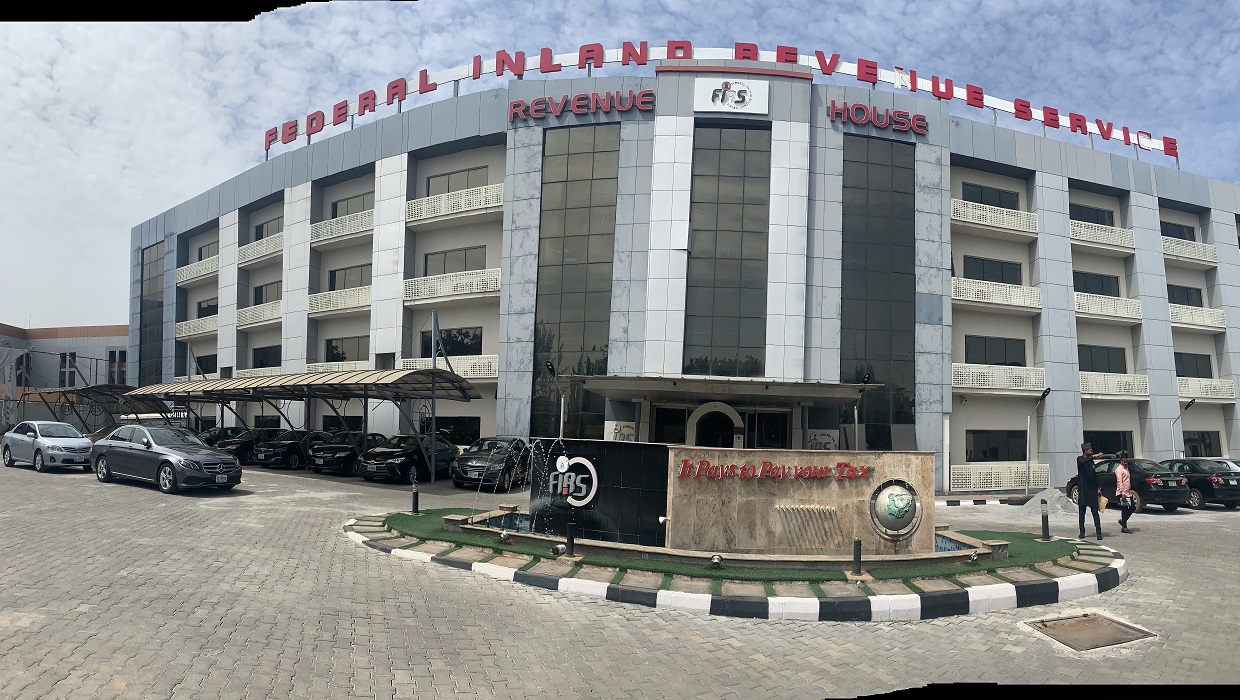Business
We are still unable to get full supply of crude oil from domestic producers – Dangote Group

The Dangote Refinery reiterated that they are still unable to secure their full crude requirement from domestic production and urged the Nigeria Upstream Petroleum Regulatory Commission (NUPRC) to enforce the domestic supply obligation as mandated by the Petroleum Industry Act (PIA).
The Dangote Group has alleged that it used to buy Nigeria crude oil from international traders at an additional premium of $3 to $4 per barrel.
The Group stated this in a press statement signed by its Chief Branding and Communications Officer, Anthony Chiejina where it clarified media reports that NNPC had supplied its quota of crude oil to the Dangote oil refinery.
According to the statement, the company noted that International Oil Companies (IOCs) are not complying with oil supply guidelines from the Nigeria Upstream Petroleum Regulatory Commission (NUPRC).
It explained that it had to buy the same Nigerian crude oil from the IOCs international trading arm at a premium of up to $3 to $4.
The statement reads, “Our attention has been drawn to media reports alleging that the Dangote Refinery has backtracked by acknowledging that NNPC supplied about 60% of the 50 million barrels we lifted.”
“To clarify, we have never accused NNPC of not supplying us with crude. Our concern has always been that NUPRC is pushing but IOCs are not following the instructions to enforce the domestic crude supply obligation and ensure that we receive our full crude requirement from NNPC and the IOCs.”
“Consequently, we often purchase the same Nigerian crude from international traders at an additional $3-$4 premium per barrel which translates to $3-$4 million per cargo.”
“We, therefore, still insist that we are unable to secure our full crude requirement from domestic production and urge NUPRC to fully enforce the domestic crude supply obligation as mandated by the PIA. It is a law, and they just need to comply.”
The Dangote Refinery stated that for September, their requirement was 15 cargoes, of which NNPC had allocated six. Despite their appeals to NUPRC and the intervention provided, they had been unable to secure the remaining cargoes.
They further mentioned that when they approached IOCs producing in Nigeria, they were redirected to the international trading arms of these companies or were informed that the cargoes were already committed elsewhere.
Business
Student loan scheme is part of anti-corruption efforts, says Tinubu

President Bola Tinubu says Nigeria’s new student loan regime could be considered an anti-corruption mechanism.
Tinubu was speaking about his government’s anti-corruption efforts during a presidential media chat that aired on Monday night.
He was asked if he considers anti-corruption an integral element among his governance priorities.
Tinubu said any policy intervention that aims to address the driver of corrupt practices could be considered anti-corruption.
“Corruption, in all its ramifications, is bad. But first, you must pay enough attention to its causes,” the president said.
“Why are the people corrupt? Lack of social amenities, lack of funding for their children’s education. There are so many anti-corruption mechanisms that you can put in place to help the people not be corrupt. Pay them good living wages.
“I have moved from 35,000 to 70,000. To me, that’s anti-corruption. I have given more money to the state and local government levels. I have been transparent with my earnings. Every month, there is a publication on how much this country is making.
“The ability to stem corruption is part of the instrument of the EFCC. That is why they are discovering all sorts of inefficiencies in the system, blocking all the loopholes where anybody can just game the system. That is part of anti-corruption.”
Tinubu said enabling equitable access to tertiary education through a loan scheme is just as important in the anti-corruption struggle.
“The removal of subsidies is also anti-corruption. It is very difficult to say you would eliminate it. You can only reduce it to the barest minimum. Help the people grow. Help them with the education of their children. Our student loan is part of anti-corruption,” he said.
“No parent should lament how to encourage their children in university education. Today, it’s working for a larger part of the population. The society is moving from illiteracy to literacy.
“I enjoy debate on what type of courses are being offered in the university these days to improve science, knowledge, and technology. We continue to work on it. We’re not taking our eyes off these serious matters.”
Business
APPLY: FIRS begins recruitment of senior managers, directors

The Federal Inland Revenue Service (FIRS) has begun its recruitment exercise for experienced professionals to fill specialised positions in the organisation.
Announcing various vacant roles on Monday, the FIRS said the recruitment exercise is part of its consolidation strategies.
The advertised positions include assistant manager and deputy manager roles in tax (investigation), PRS (research), public relations, and ICT (cybersecurity and AI management).
Other available roles are assistant manager and deputy manager in PRS (risk management), assistant manager and deputy manager in legal, and senior manager and assistant director roles in tax (audit).
“Applicants must have qualifications and relevant professional certificates as specified in the positions they are applying for and must also fulfill the following requirements,” the agency said.
“Applicant must possess Bachelor’s degree/HND with at least second class lower/lower credit.
“Applicant must have completed NYSC not later than 31st December 2017.
“Applicant for the position of assistant manager and deputy manager must not be more than 40 years of age while senior manager and assistant director must not be more than 45 as at 31st December 2024.”
The revenue agency said candidates must possess strong leadership and management skills, team spirit and ability to effectively delegate, interpersonal and communication skills, and strong Analytical skills.
“Knowledge of the Nigerian tax laws and appreciation of their application and understanding of the regulatory framework within which the FIRS operates,” the FIRS said.
“Knowledge of business/industry environment within which taxpayers operate.
“Ability to work as a regulator with the courage to ensure full compliance with laws.
“Interested candidates should apply via official FIRS career portal: careers.firs.gov.ng and or FIRS verified social media handles.”
The FIRS said the application portal will open on December 23, 2024, noting that the deadline for submissions is January 11, 2025.
The service advised applicants to carefully review the eligibility criteria before applying to ensure they meet all requirements and understand the qualifications needed for successful selection.
Business
UBA GMD calls for public-private partnership to accelerate economic growth

Oliver Alawuba, group managing director (GMD) and chief executive officer (CEO) of United Bank for Africa (UBA), has called for public-private partnership (PPP) to accelerate economic growth.
Alawuba spoke on December 20 during the launch of the newly renovated departure section of the Murtala Muhammed International Airport (MMIA), Lagos, refurbished by UBA.
According to a statement on Sunday by the bank, the project, which signifies a transformative moment in Nigeria’s aviation sector, shows UBA’s commitment to national development, highlighting the immense value of strategic PPPs.
The ceremony was attended by stakeholders, including Festus Keyamo, minister of aviation and aerospace development, and Olubunmi Kuku, managing director of the Federal Airports Authority of Nigeria (FAAN).
Alawuba commended the collaboration that led to the execution of the project, emphasising the need for public and private institutions to come together to build and revamp the nation’s assets.
“This renovation is a testament of UBA’s belief in the transformative power of investing in national assets. By modernising our airports, we not only enhance infrastructure but also position Nigeria as a global hub for tourism, trade, and investment,” he said.
“Public-private partnerships like this demonstrate what can be achieved when we unite for a shared vision of progress and investing in infrastructure catalyses economic growth, improves travel experiences, and creates opportunities across various sectors of the economy.
“The commissioning of the renovated departure section serves as a reminder of what strategic partnerships can achieve in driving national development and elevating Nigeria’s global standing.”
-

 News1 week ago
News1 week agoNaseni’s Executive Vice Chairman, Khalil Suleiman Halilu, Named 2024 Winner Of Daily Global Newspaper Conference Series Award For Science, Technology, Innovation, And Infrastructure
-

 Relationships1 week ago
Relationships1 week agoFour dating tips for single mum
-

 Relationships6 days ago
Relationships6 days ago‘I wish I met you before the wrong person’ – says Portable’s baby mama, Honey Berry, as she flaunts new lover
-

 Business5 days ago
Business5 days agoPoS operators increase withdrawal charges, blame electronic levy, cash scarcity
-

 News1 week ago
News1 week agoLagos state government shuts Lord’s Chosen Church, businesses across Lekki, VI, others over noise, environmental infractions
-

 Entertainment6 days ago
Entertainment6 days agoBovi speaks against beating children, reveals why his family relocated to UK
-

 News1 week ago
News1 week agoTerrorism probe: Finnish authorities freeze Simon Ekpa’s assets
-

 Entertainment5 days ago
Entertainment5 days agoRaheem Sterling’s ex-girlfriend, Tabby Brown dies after BBL surgery


















